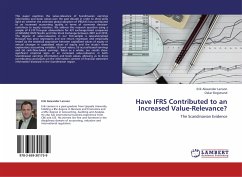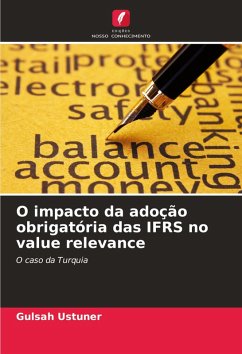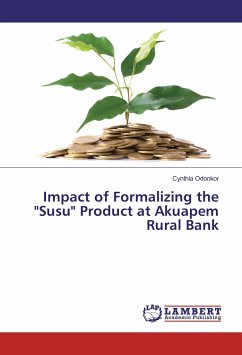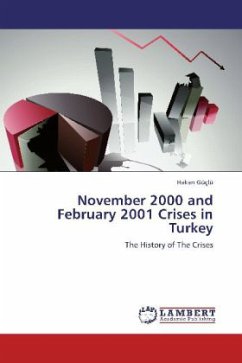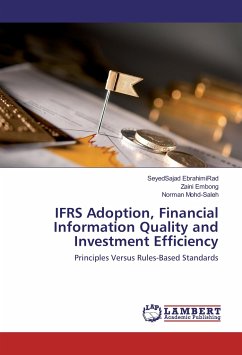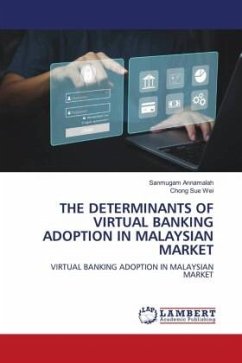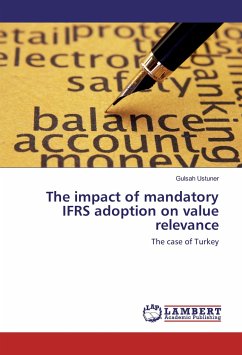
The impact of mandatory IFRS adoption on value relevance
The case of Turkey
Versandkostenfrei!
Versandfertig in 6-10 Tagen
16,99 €
inkl. MwSt.

PAYBACK Punkte
8 °P sammeln!
In 2005, all listed companies in EU are required to prepare their financial statements in accordance with International Financial Reporting Standards (IFRS). Turkey, as being a candidate country for EU membership, also adopted IFRS for listed companies on Istanbul Stock Exchange (ISE) at that date. This study investigates the effect of this mandatory transition to IFRS on accounting quality of financial statements. In order to examine accounting quality effect, we compared the relative and incremental value relevance of net income and book value of equity to stock prices for listed firms betwe...
In 2005, all listed companies in EU are required to prepare their financial statements in accordance with International Financial Reporting Standards (IFRS). Turkey, as being a candidate country for EU membership, also adopted IFRS for listed companies on Istanbul Stock Exchange (ISE) at that date. This study investigates the effect of this mandatory transition to IFRS on accounting quality of financial statements. In order to examine accounting quality effect, we compared the relative and incremental value relevance of net income and book value of equity to stock prices for listed firms between pre-adoption period and post-adoption period. The value relevance tests give empirical evidence that the BVE and NI are more value relevant under IFRS standards compared to Turkish GAAP standards for Turkish listed firms. These findings can be explained by the fair value orientation of IFRS compared to historical cost emphasis under Turkish GAAP. Taken as a whole, the results suggest thatthe revisions and new standards of IFRS improve the value relevance of accounting measures for Turkish listed companies.




